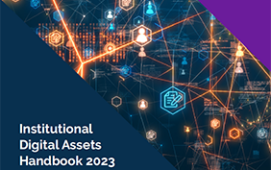
Delta Capita, best known for its capital markets consulting and managed services solutions, bolstered its client lifecycle management (CLM) offering earlier this year through the acquisition of GoldTier, a client onboarding solution, from LSEG.
This has now been woven into Delta Capita’s AI-powered Karbon suite, which aims to streamline client onboarding, KYC, AML and regulatory compliance processes. LSEG remains a customer, and in May Daiwa Capital Markets Europe chose the solution to help streamline access to Asian markets for non-domestic customers.
RegTech Insight recently spoke with Karan Kapoor, Global Head of Regulatory and Post-Trade Consulting, and Niamh Kingsley, Head of Product Innovation and AI, to hear more about these developments and Delta Capita’s approach to guiding capital markets firms through their regulatory challenges and overall digital journey.
Regulatory and Post Trade Consulting
Kapoor’s global consulting group includes a core SME team of regulatory compliance experts with deep industry expertise that’s tasked with scanning for regulatory changes and assessing impacts on the industry and client’s obligations. The team has partnerships with a number of horizon-scanning firms that provide data feeds and client focused impact assessments from non-core jurisdictions and a law firm for guidance on the specific legalities of a regulatory change.
In addition to providing advisory services, the SME team curates and publishes thought leadership bulletins for clients and the public.
The consulting team has been busy helping firms with post-trade challenges resulting from the CSDR refit and T+1 initiatives. In Europe they are actively involved in the Association of Financial Markets in Europe (AFME) T+1 working group.
Kapoor’s team has been helping clients navigate the transaction reporting challenges ushered in by the various refits. “The Q&As for the UK EMIR [regulation] that’s supposed to go live end of September have only just been released in July, so there’s a lot of work still going on around testing, and our teams are deeply involved with these initiatives.”
Third-party risk management and control frameworks driven by the upcoming Digital Operations Resilience Act (DORA) and Prudential Regulation Authority (PRA) supervisory statements issued earlier this year are another high-demand area along with assistance with ESG data acquisition.
Remediation programs and assurance work around data quality are underway at a number of clients around MIFID – identifying data-quality issues, where they’re non-compliant or at-risk, and helping with remediation efforts.
In one of the latest advisory projects, they have been asked by a client to create a mock regulatory examination to prepare for the types of questions they’ll be asked, and the levels of evidence regulators will be expecting to see. This is being run by SMEs who have “lived through multiple examinations in the past.”
Delta Capita is seeing a lot of demand for expertise and advisory services around AI regulation and best practices. For example, a firm might want to understand how regulators in Hong Kong and Singapore are responding to the EU AI act.
Kingsley notes that in addition to regulatory and technology debt, there is a significant skills debt that the regulators are starting pick up on. She continues, “when we look at things like the FCA sandboxes, the SS123 model risk management principles from PRA, the EU AI act 2024, regulators are taking a more collaborative approach. But they’re also starting to mandate a level of institutional education as part of that regulation. For example, it’s a requirement in the EU AI act that if you’re deploying AI, you must have a level of enterprise education, and I think that’s really significant.”
Innovation and AI
At the core of Delta Capita’s strategy is a commitment to leveraging advanced technologies in its mission to ‘Reinvent the Investment Banking Value Chain’.
Kingsley explains how they differentiate with a ‘post-digital, post-trade’ point of view. “I think what makes us different at ‘DC’ is that while we have this retrospective view of ‘okay you need to become compliant and you need to need to remediate and problem solve, we also have a proactive forward-looking view.”
Kingsley continues, “so, we talk about the post-digital space, and we have a lot of thought leadership published for ‘post-digital post-trade’, and soon we’re doing a similar series for CLM. For us it’s about taking new technologies like AI, distributed ledger technology (DLT), robotics, extended reality (AR/VR), mutualization and then cloud and Quantum computing as well.”
Some of the latest innovations from Delta Capita include the Karbon CLM solution and MACH, a suite of six DLT-based solutions for post-trade processes. Karbon is a CLM platform designed to automate and streamline KYC and AML processes. It uses AI and machine learning to reduce the time and costs associated with these compliance tasks by up to 40%. Karbon automates data sourcing, profile enrichment, identity management, and screening, significantly enhancing operational efficiency and regulatory compliance. The platform’s modular components can be integrated via API or used as standalone tools, allowing flexibility in deployment.
Launched in October 2023, MACH is a suite of DLT solutions aimed at enhancing transaction processing in capital markets. It supports the design, implementation, and execution of complex transactions, offering improved efficiency and transparency. MACH stands out for its use of blockchain technology to streamline post-trade processes, reduce operational risks, and increase the security and integrity of transaction data.
Future Focus and Strategic Recommendations
So what are the top three actions that compliance practitioners should be considering today.
Kingsley: “I would encourage every institution to benchmark their AI strategy against institutional standards. We work with AFME where we run the forum on GenAI risk and a benchmarking standards.”
“Secondly, institutions need to start thinking now about their post-digital strategy. Some things like DLT, robotics, AI and Quantum, I don’t believe that those are a 10-year problem. I think that’s a three-year problem and that we’re going to see real cyber security challenges in quantum in the next three years.”
“And then the third thing is the digital upskilling. You know AI is not going to replace your job, but you could be replaced by someone that can use AI effectively.”
Kapoor’s three takeaways include advising organizations to adopt a strategic approach to regulatory compliance, to ensure long-term alignment with evolving regulations and lastly, the need for robust governance frameworks.
“It’s around governance and getting the right frameworks in place. This exercise to try and consolidate the compliance landscape in one place seems like a very tedious task which involves lots of policy reviews and policy architecture questions.”
“But having done that once, you have a clear understanding of how you’re compliant as a business. Whether you’re running a trading business or running a lending business, all the regulations that you’re supposed to be compliant with are clearly defined in one place, and you have visibility into your compliance status. Having the right controls in place and having a clear understanding of how they connect policy to regulation makes regulatory changes easier to manage in the future.”
Subscribe to our newsletter



